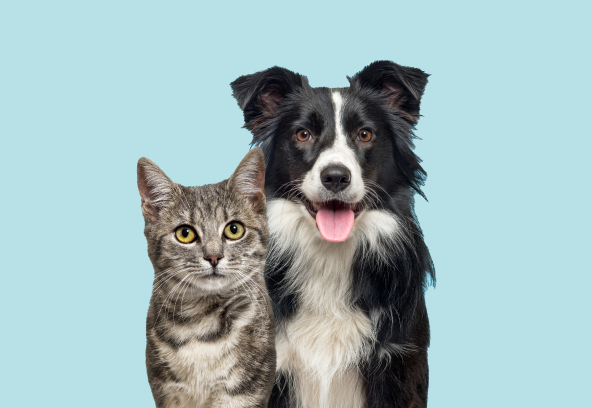For elderly individuals living alone, a pet's company can be a heartwarming addition that can enhance the well-being and happiness of seniors...
13 March 2024
As we journey through the various stages of life, the significance of companionship becomes increasingly apparent. For elderly individuals living alone, a pet's company can be a heartwarming and fulfilling addition to their lives. The love, loyalty and unwavering presence of a pet can enhance the well-being and happiness of seniors. However, selecting the right pet requires careful consideration to ensure a harmonious and nurturing relationship that is enjoyable and manageable.
Choosing the Right Pet:
When considering a pet as an elderly companion, it's essential to account for the individual's physical abilities, preferences, and lifestyle. While dogs and cats are popular choices, smaller animals like birds, rabbits, or fish can also provide companionship without demanding extensive physical exertion. Dogs can offer unconditional love and protection, while cats bring a sense of calm and relaxation. Birds add cheerful chirps to the environment, and the gentle presence of a rabbit can be soothing. Match the pet's characteristics and needs with the senior's capabilities and desires.
Consider the Costs:
Before welcoming a furry or feathery friend into their home, seniors should be aware of the financial commitments associated with pet ownership. Costs include food, veterinary care, grooming, and supplies such as litter, toys, and bedding. Budgeting for these expenses is crucial to prevent any financial strain. Many local animal shelters and rescue organisations offer discounted adoption fees for senior citizens, making the initial cost more manageable.
Physical Demands:
While pets can provide companionship, they can also require physical effort. Dogs, for instance, need regular walks and exercise, which can benefit the owner's and the pet's health. However, a cat or smaller animal might better suit those with limited mobility. Seniors should consider their energy levels and physical capabilities when choosing a pet, ensuring their new companion is a source of joy rather than a burden.
Social Engagement:
Pets offer companionship within the home and provide opportunities for social interactions outside. Walking a dog can lead to meaningful interactions with neighbours and other pet owners, fostering a sense of community. Additionally, therapy animal programmes or local pet-friendly events can encourage seniors to engage with others, promoting a more active and vibrant lifestyle.
Planning for the Future:
As seniors age, it's crucial to have a plan for their pet's well-being should they no longer be able to provide care. Discussing arrangements with family members or friends and having a backup plan for the pet's care ensures that the pet will continue to receive the love and attention it deserves.
The companionship of a pet can bring immeasurable joy and comfort to the lives of elderly individuals living alone. The bond between a pet and its owner can provide a sense of purpose, routine and emotional support. By carefully considering factors such as the senior's capabilities, preferences and financial situation, the decision to adopt a pet can result in a fulfilling and mutually beneficial relationship. Whether it's the gentle purr of a cat, a dog's wagging tail, or the melodic chirping of a bird, the right pet can be a cherished and treasured companion on life's journey.



